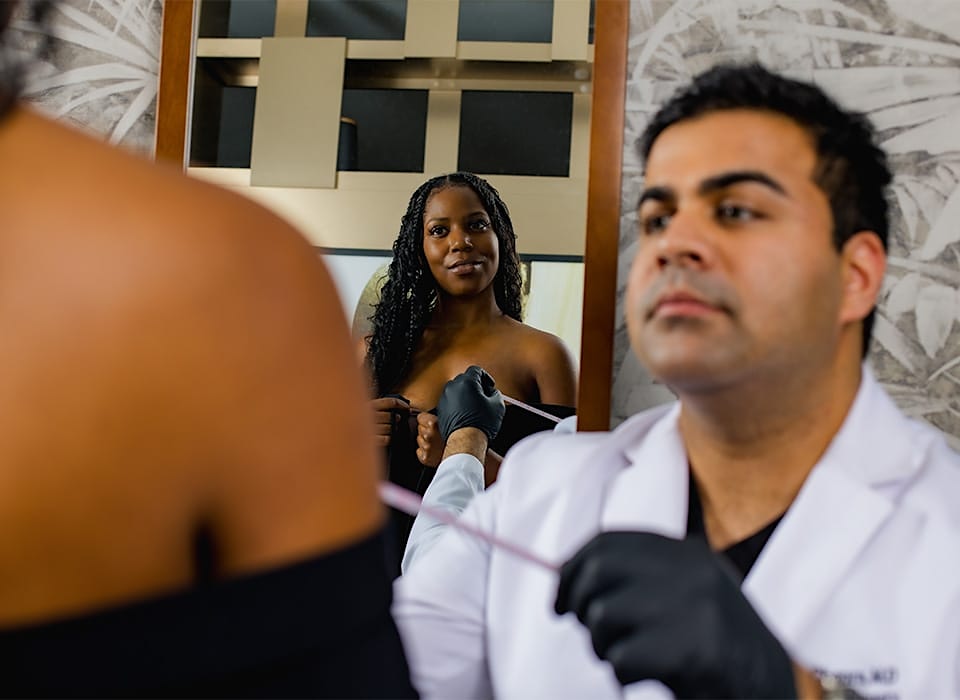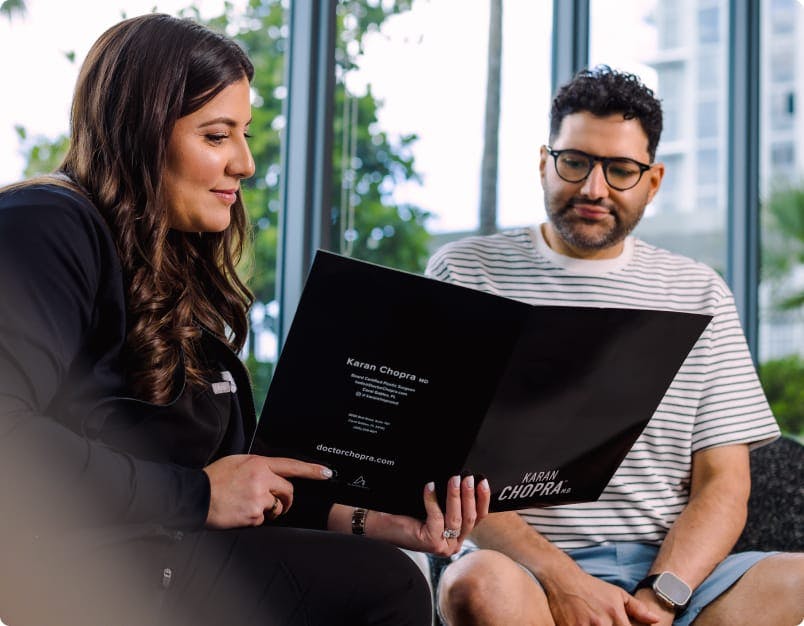If you have had one or more breasts removed as part of a medical procedure or as the result of a traumatic injury, Dr. Chopra is here to help. Breast reconstruction in Miami can restore your bust and your self-esteem in equal measure.
Why Choose Breast Reconstruction
The loss of one or both breasts can lead to a perceived lack of balance or symmetry, which can be unsettling and leave you longing for your former appearance. Breast reconstruction can restore this sense of symmetry, allowing you to feel more comfortable and natural in your body. This procedure is also frequently viewed as the final step in the recovery process after a mastectomy, giving you a sense of closure and allowing you to move forward after breast cancer.













